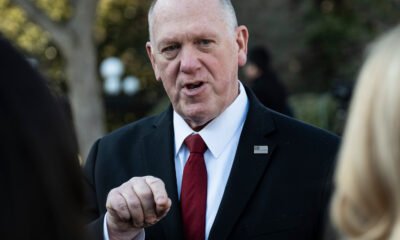Politics
Republican Megabill Clears Crucial Senate Hurdle But What’s Coming Next Has Lawmakers on Edge
The Senate pushes forward Republicans’ sweeping megabill, but the real drama begins now, as a grueling vote-a-rama”session threatens to tear open party lines and stall progress.

In a late-night procedural vote that set the stage for a political storm, the United States Senate has advanced the Republican megabill, a sweeping package of tax, immigration, and spending measures long championed by conservative leadership.
The 67–32 vote doesn’t make the bill law yet — but it clears a critical threshold, allowing debate and amendments to proceed. What happens next, insiders say, could stretch into a chaotic marathon session known as vote-a-rama where hundreds of amendments are expected to be proposed, debated, and voted on in rapid succession.
Mitch McConnell, Senate Minority Leader, hailed the advancement as “a necessary step toward restoring fiscal responsibility and securing our borders.” Yet even within Republican ranks, tensions are simmering.
The bill itself is a political behemoth: It proposes a renewal of Trump-era tax cuts, increased funding for border security, tighter Medicaid work requirements, and adjustments to defense and energy allocations. Supporters argue it’s a long-overdue recalibration of federal priorities. Critics, however, call it “an ideological wishlist wrapped in budget jargon.
Chuck Schumer, Senate Majority Leader, warned that the bill faces “serious hurdles” ahead. This is far from over,” he said. “We are entering a legislative brawl that will test every alliance in this chamber.
Analysts say the procedural vote was largely symbolic but still significant. It indicates that GOP leadership, especially in an election year, is determined to flex its legislative muscle — and test the limits of bipartisan cooperation.
The upcoming vote-a-rama, often likened to political trench warfare, will allow any senator to introduce an unlimited number of amendments. It’s a process that can expose internal fractures, delay progress for hours or days, and force senators to take awkward, high-stakes votes on hot-button issues.
Behind closed doors, aides for both parties are reportedly scrambling to craft amendment strategies — some meant to derail the bill, others to fortify it. Bernie Sanders and progressive Democrats are expected to introduce amendments on climate and healthcare, while Josh Hawley and other conservatives may push for stricter border language.
The bill’s advancement comes as Donald Trump looms large over the party and its agenda, especially with his campaign trail rhetoric focused heavily on immigration and tax reform. Though Trump has not formally commented on this week’s vote, allies say the bill reflects “his vision for America, post-Biden.”
Observers caution that even if the Senate passes the bill after amendments, it faces a steep climb in the House of Representatives and potential White House veto threats.
Still, the procedural green light signals that the Republican machine is mobilized — and ready for the long legislative fight ahead.
Politics
The Untold Strain of Sundance Festival Insiders Describe the Emotional Highs and Breaking Points
A racially charged confrontation at a high-profile Sundance gathering turns violent, prompting an arrest and reigniting debate over hate speech and political rhetoric in public spaces.
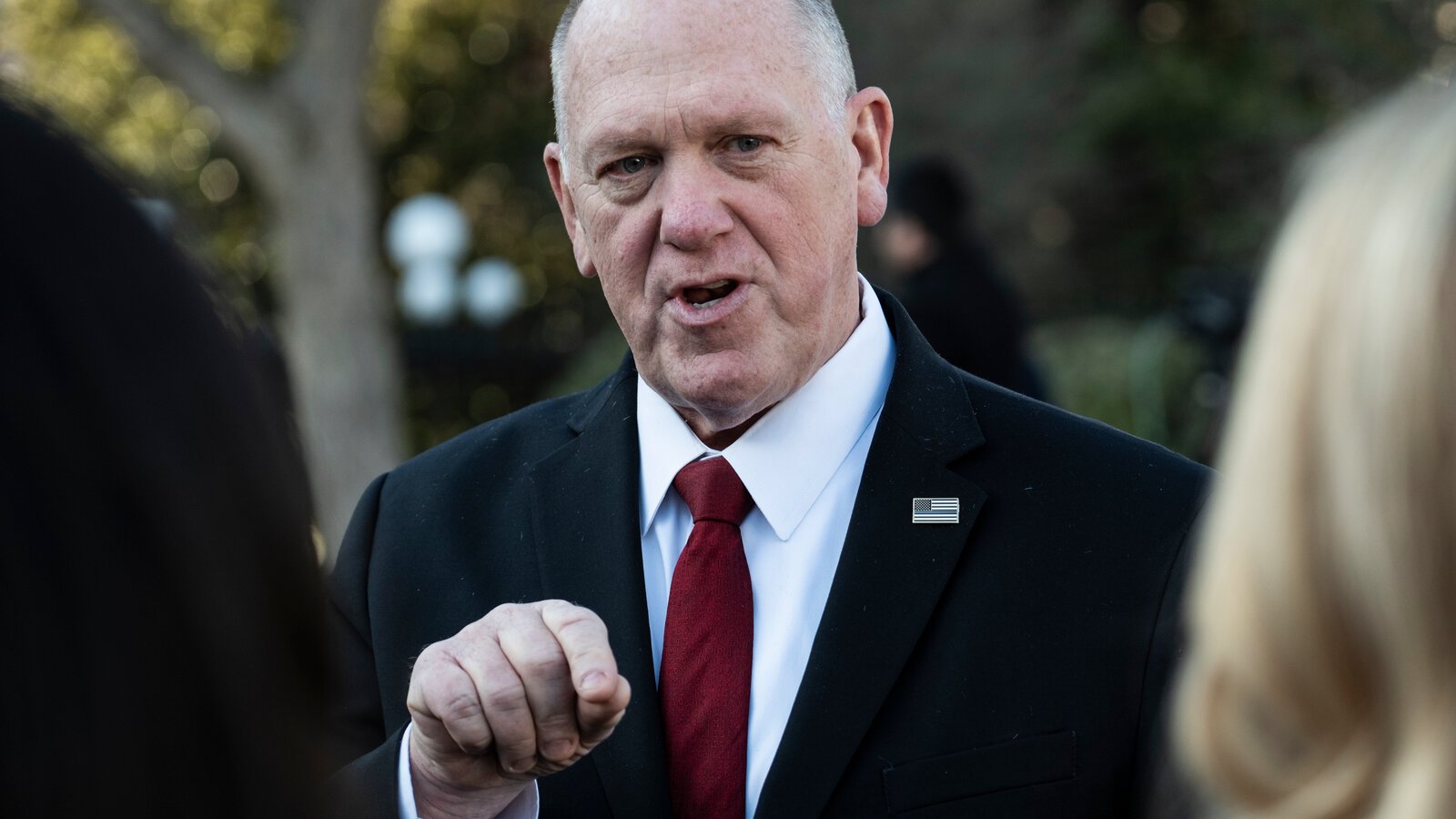
What was meant to be an exclusive celebration during the Sundance Film Festival ended in shock and outrage after a racially charged confrontation turned violent, leading to an arrest and widespread condemnation.
A man was taken into custody following an incident at a private party hosted by Creative Artists Agency (CAA) during Sundance, where he allegedly confronted U.S. Congressman Maxwell Alejandro Frost with racist remarks before physically assaulting him.
According to Frost’s account, the man loudly proclaimed how “proud” he was to be white, then escalated the encounter by telling the congressman that Donald Trump was “going to deport me” — a statement Frost confirmed was made moments before he was punched in the face.
The confrontation unfolded amid one of the most influential gatherings tied to the Sundance Film Festival, a space typically associated with artistic expression, political dialogue, and cultural inclusivity.
From Political Taunt to Physical Violence
Frost, the first Gen Z member of Congress and a prominent progressive voice, later confirmed the details of the incident, describing it as an unprovoked escalation rooted in racial identity and political hostility.
ALSO READ : “She Never Made It Out…” Albany House Fire Claims Woman’s Life as Family Pleads for Help to Bring Her Home
Witnesses at the event reported that the man appeared intoxicated and increasingly aggressive before security intervened. Law enforcement confirmed that the suspect was arrested on the scene and that charges are being reviewed.
While authorities have not publicly released the suspect’s name, officials noted that the investigation is treating the matter seriously given the racially charged language used during the encounter.
A Disturbing Pattern Beyond One Night
The incident has quickly drawn national attention, not only because it involved a sitting member of Congress, but because it echoes broader concerns about rising political aggression and racially motivated confrontations in public spaces.
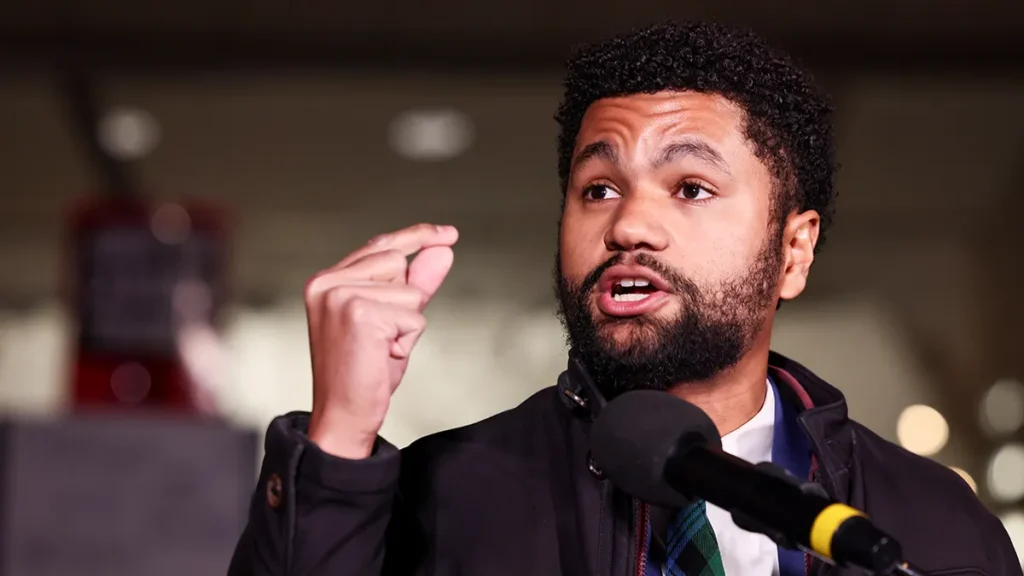
Civil rights advocates argue that rhetoric surrounding immigration, race, and nationalism has increasingly crossed from speech into action — especially in environments where alcohol, political identity, and social status intersect.
“This wasn’t just an argument,” one attendee said. “It felt like something much darker bubbling to the surface.”
CAA and Sundance Respond
CAA representatives emphasized that the party was meant to be a safe, private gathering and that they are cooperating fully with authorities. Festival organizers also distanced the event from official Sundance programming while condemning the violence.
The Sundance Film Festival, long positioned as a platform for marginalized voices and progressive storytelling, has faced renewed scrutiny over security protocols at affiliated private events.
Frost Breaks the Silence
Frost later addressed the incident publicly, underscoring that he would not be intimidated by threats or violence.
“No one should have to endure this — anywhere,” he said, adding that the incident reinforced the importance of confronting hate head-on rather than normalizing it.
Support poured in from fellow lawmakers, artists, and activists, many of whom called for stronger accountability when racially charged speech turns into physical harm.
More Than a Single Arrest
As the investigation continues, the episode has sparked a wider conversation about the responsibility of political leaders, cultural institutions, and event organizers in ensuring safety — especially at moments when rhetoric becomes combustible.
For many, the most unsettling part of the story is how quickly ideology transformed into violence — and how casually the threat of deportation was invoked as a weapon.
What happened at a Sundance party may fade from headlines, but the issues it exposed are far from temporary.
Politics
“Trump Deportation Threat Turned Into Assault”: Man Arrested After Shocking Sundance Incident
A racially charged confrontation at a high-profile Sundance gathering turns violent, prompting an arrest and reigniting debate over hate speech and political rhetoric in public spaces.

What was meant to be an exclusive celebration during the Sundance Film Festival ended in shock and outrage after a racially charged confrontation turned violent, leading to an arrest and widespread condemnation.
A man was taken into custody following an incident at a private party hosted by Creative Artists Agency (CAA) during Sundance, where he allegedly confronted U.S. Congressman Maxwell Alejandro Frost with racist remarks before physically assaulting him.
According to Frost’s account, the man loudly proclaimed how “proud” he was to be white, then escalated the encounter by telling the congressman that Donald Trump was “going to deport me” — a statement Frost confirmed was made moments before he was punched in the face.
The confrontation unfolded amid one of the most influential gatherings tied to the Sundance Film Festival, a space typically associated with artistic expression, political dialogue, and cultural inclusivity.
From Political Taunt to Physical Violence
Frost, the first Gen Z member of Congress and a prominent progressive voice, later confirmed the details of the incident, describing it as an unprovoked escalation rooted in racial identity and political hostility.
ALSO READ : “She Never Made It Out…” Albany House Fire Claims Woman’s Life as Family Pleads for Help to Bring Her Home
Witnesses at the event reported that the man appeared intoxicated and increasingly aggressive before security intervened. Law enforcement confirmed that the suspect was arrested on the scene and that charges are being reviewed.
While authorities have not publicly released the suspect’s name, officials noted that the investigation is treating the matter seriously given the racially charged language used during the encounter.
A Disturbing Pattern Beyond One Night
The incident has quickly drawn national attention, not only because it involved a sitting member of Congress, but because it echoes broader concerns about rising political aggression and racially motivated confrontations in public spaces.

Civil rights advocates argue that rhetoric surrounding immigration, race, and nationalism has increasingly crossed from speech into action — especially in environments where alcohol, political identity, and social status intersect.
“This wasn’t just an argument,” one attendee said. “It felt like something much darker bubbling to the surface.”
CAA and Sundance Respond
CAA representatives emphasized that the party was meant to be a safe, private gathering and that they are cooperating fully with authorities. Festival organizers also distanced the event from official Sundance programming while condemning the violence.
The Sundance Film Festival, long positioned as a platform for marginalized voices and progressive storytelling, has faced renewed scrutiny over security protocols at affiliated private events.
Frost Breaks the Silence
Frost later addressed the incident publicly, underscoring that he would not be intimidated by threats or violence.
“No one should have to endure this — anywhere,” he said, adding that the incident reinforced the importance of confronting hate head-on rather than normalizing it.
Support poured in from fellow lawmakers, artists, and activists, many of whom called for stronger accountability when racially charged speech turns into physical harm.
More Than a Single Arrest
As the investigation continues, the episode has sparked a wider conversation about the responsibility of political leaders, cultural institutions, and event organizers in ensuring safety — especially at moments when rhetoric becomes combustible.
For many, the most unsettling part of the story is how quickly ideology transformed into violence — and how casually the threat of deportation was invoked as a weapon.
What happened at a Sundance party may fade from headlines, but the issues it exposed are far from temporary.
Politics
Why Bari Weiss Says Pulling a ‘60 Minutes’ Story Was the Right Call — Even If It Looked Radical
Facing backlash from activists and political pressure alike, the CBS News editor-in-chief argues that controversial editorial calls are essential to restoring public trust in the media.

In an era when every editorial decision is dissected in real time, Bari Weiss is standing firm behind one of the most controversial calls of her tenure at 60 Minutes.
Weiss has once again defended her last-minute decision to pull a segment from the long-running CBS newsmagazine, acknowledging that the move “may seem radical” to outsiders—but insisting it was necessary to protect what she calls the integrity of the news.
In a memo sent to staff and co-signed by Tom Cibrowski, along with senior editors Charles Forelle and Adam Rubenstein, Weiss framed the decision as part of a broader effort to rebuild public confidence in journalism at a time when trust in media institutions continues to erode.
The Story at the Center of the Storm
The pulled segment reportedly focused on the experiences of Venezuelan migrants deported by the Donald Trump administration to a prison in El Salvador—a topic that sits at the intersection of immigration policy, human rights, and partisan politics.
ALSO READ : “She Never Made It Out…” Albany House Fire Claims Woman’s Life as Family Pleads for Help to Bring Her Home
According to Weiss, the issue was not the subject matter itself, but whether the segment met the editorial standards the newsroom demands before airing.
“No amount of outrage—whether from activist organizations or the White House—will derail us,” Weiss wrote in the memo, making clear that external pressure did not drive the decision.
Instead, she characterized the move as an example of editorial restraint at a time when speed, outrage, and social-media reaction often dominate newsroom judgment.
A ‘Radical’ Choice in a Polarized Media Climate
Weiss did not shy away from describing the decision as controversial. In fact, she embraced that reality, arguing that journalism sometimes requires choices that invite criticism from all sides.
In today’s media environment, pulling a completed story—especially one tied to immigration and a former president—is almost guaranteed to ignite backlash. For Weiss, that backlash is part of the cost of maintaining standards.
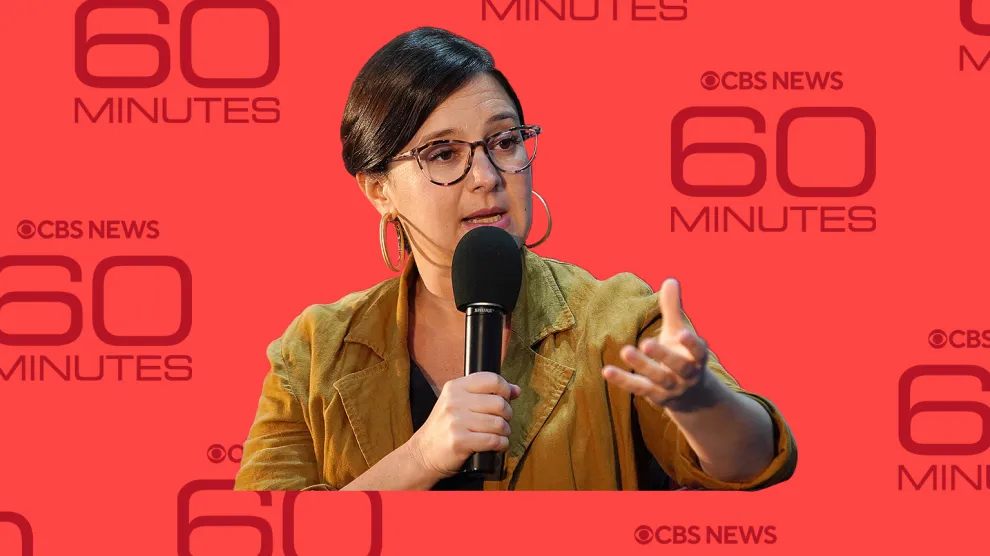
“Necessary decisions can cause a firestorm,” she acknowledged, suggesting that editorial courage is often indistinguishable from provocation in a deeply polarized public sphere.
Trust as the Real Battleground
At the heart of Weiss’s defense is a larger concern: Americans’ declining trust in news organizations.
By emphasizing caution over immediacy, Weiss positioned the decision as a long-term investment in credibility rather than a short-term reputational hit. Her message to staff was clear—journalistic integrity must outweigh the pressure to satisfy activists, political actors, or even audience expectations.
The memo’s tone reflected a newsroom aware that neutrality itself has become suspect, and that editorial leadership now involves navigating not just facts, but perceptions of motive.
What This Means for ‘60 Minutes’ and CBS News
For CBS News, the controversy underscores how even legacy institutions are struggling to operate in a climate where every editorial choice is interpreted through ideological lenses.
60 Minutes, long regarded as one of the most influential investigative programs in American television, now finds itself at the center of a debate about transparency, restraint, and the line between caution and censorship.
Supporters of Weiss argue that pulling the story demonstrates editorial responsibility. Critics contend it risks chilling coverage of sensitive topics.
Both sides, however, agree on one thing: decisions like this are shaping the future of mainstream journalism.
A Defining Moment for News Leadership
Whether Weiss’s call ultimately strengthens or weakens public trust remains an open question. But her willingness to publicly frame the decision as “radical” suggests an editor aware that traditional newsroom playbooks no longer apply.
In a media landscape driven by immediacy and outrage, restraint itself may now be the most provocative stance of all.
-

 Entertainment1 week ago
Entertainment1 week agoHe-Man Wears a Suit Now… Nicholas Galitzine’s ‘Masters of the Universe’ Trailer Drops a Shock Fans Didn’t See Coming
-

 Entertainment1 week ago
Entertainment1 week agoBrazil Eyes Oscar History Again… ‘The Secret Agent’ Scores Best Picture Nomination as Wagner Moura Stuns Hollywood
-

 Entertainment6 days ago
Entertainment6 days ago“Comedy Needs Courage Again…”: Judd Apatow Opens Up on Mel Brooks, Talking to Rob Reiner, and Why Studio Laughs Have Vanished
-

 Entertainment1 week ago
Entertainment1 week agoOscars Go Global in a Big Way as This Year’s Nominations Signal a New Era: ‘The Academy Is Finally Looking Beyond Hollywood…’
-

 Entertainment1 week ago
Entertainment1 week ago“Dangerously Kinky… and Darkly Funny”: Olivia Wilde and Cooper Hoffman Push Boundaries in ‘I Want Your Sex’
-

 Sports1 week ago
Sports1 week agoA Strong Night for Caleb Williams Ends With Doubts About the Bears’ Late Decisions
-
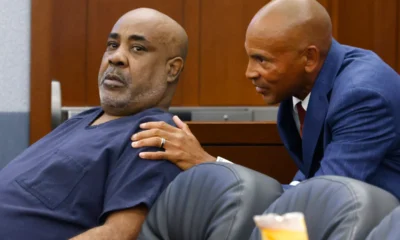
 Crime6 days ago
Crime6 days agoMan Accused in Tupac Shakur Killing Asks Judge to Exclude Critical Evidence
-

 Politics1 week ago
Politics1 week agoWhy Bari Weiss Says Pulling a ‘60 Minutes’ Story Was the Right Call — Even If It Looked Radical


